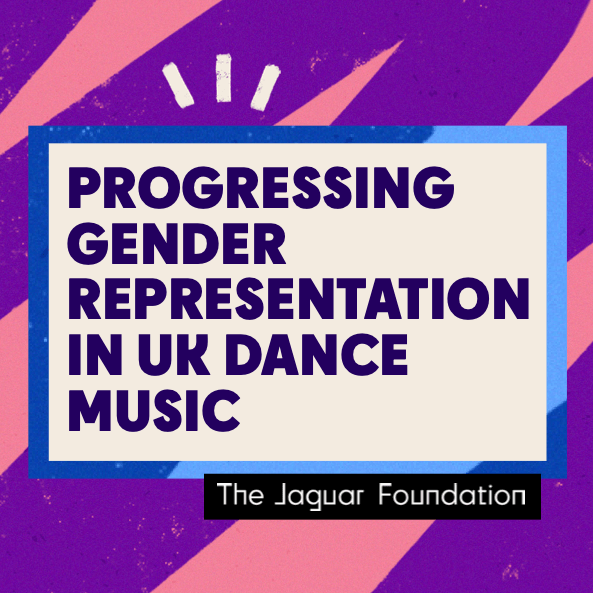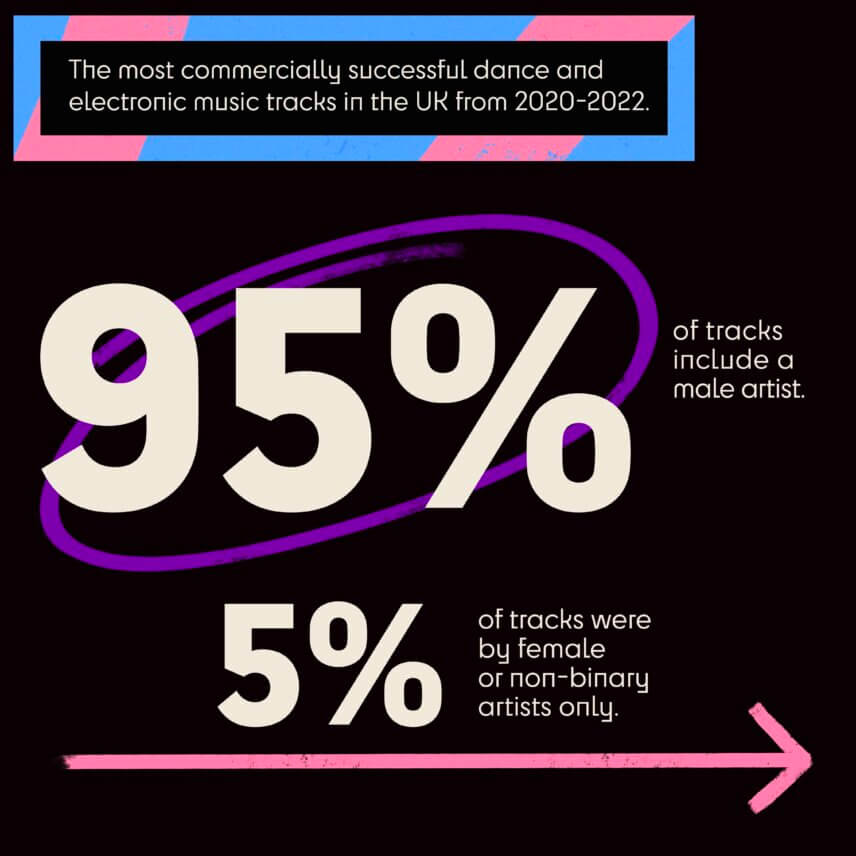The Jaguar Foundation has released the findings of its report, Progressing Gender Representation In UK Dance Music.
Backed by the Sony Music UK Social Justice Fund, the most comprehensive analysis of gender data in the UK dance music industry has now been published.

The Jaguar Foundation has released the findings of its report, Progressing Gender Representation In UK Dance Music, which aims to data on gender balance in UK dance music, using research from a range of artists and industry executives. The report finds:
- A distinct lack of mainstream representation for female or non-binary artists in live dance music – gender equality still an issue across festival line-ups
- Many artists feel unsafe in nightclubs and other live spaces – more to be done on safeguarding and codes of conduct
The Foundation was set up by the host of BBC Introducing on Radio 1 Dance, Jaguar, in 2020 following her creation of the Future 1000 DJs programme with Future DJs (now Virtuoso). The drive is to improve the pipeline of female, trans and non-binary talent in dance music.
The report found evidence supporting long-held beliefs about gender disparity in dance music – across the live industry, radio airplay, streaming platforms and in the gender balance of music organisation employees – as well as exploring a number of other discriminatory issues that female and non-binary people face.
This report comes at a critical time, with the 2022 International Music Summit (IMS) reporting that UK dance/electronic music is increasing as a share of people’s listening for the first time in eight years, predicting the start of a new growth cycle.
Just 5% of dance music that featured in the UK charts had exclusively female or non-binary artists as the primary artist and feature. A similar pattern is evident across radio airplay, with less than 1% of the top 200 airplay tracks across 2020-21 of twelve UK radio stations being only female or non-binary artists, as well as across Spotify’s key electronic music playlists which featured 25% of female-fronted electronic music artists.

Other key findings include:
- A number of issues, such as the risk of sexual harassment or objectification, late night-travel (often solo) and intoxicated crowds, lead to marginalised genders feeling unsafe when attending and working in live spaces.
- There is continued pressure from the ‘male gaze’ that impacts the female image, both in person and online, with women in music being judged more on their appearance than men. Ageism is also more of an issue for women than men, reflecting wider societal issues.
- Qualitative research shows that jungle, drum and bass, techno and EDM genres continue to attract male-dominated and largely white crowds, reflecting the artist make-up of those scenes.
The Jaguar Foundation makes several recommendations to address the issue and the full breakdown is available on their website.
Jaguar is set to relaunch Future1000 alongside co-founders Virtuoso under a new banner; FutureDJs. The relaunch will include a new set of on-demand courses featuring a cast of world-class educators curated by Jaguar.
Find out more about the Jaguar Foundation.
Follow Jaguar on Instagram.
